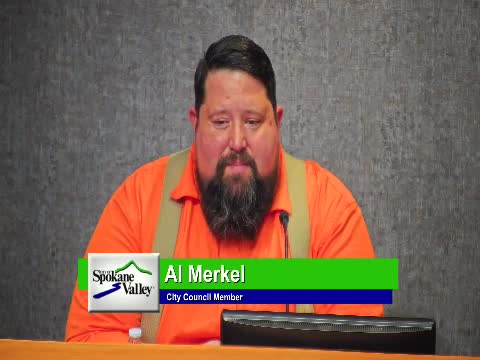Avista economist forecasts modest regional growth, flags policy risks to Spokane-area economy
Get AI-powered insights, summaries, and transcripts
Subscribe
Summary
Dr. Grant Forsyth of Avista briefed council on a cautious growth outlook for the Spokane metro area, noting health-care employment as the largest near-term driver and warning that federal trade, immigration and fiscal-policy shifts could raise costs and slow growth.
Dr. Grant Forsyth, Avista Corporation—s chief economist, told the Spokane Valley City Council on Jan. 7 that the national and regional outlook is for modest growth over the next 24 months but with significant policy-linked uncertainty.
Forsyth said most forecasters do not expect a near-term recession, but inflation reductions have stalled and the Federal Reserve is signaling fewer interest-rate cuts in 2025 than earlier anticipated. He identified three policy areas that create downside risk for growth: trade policy (higher tariffs and potential retaliatory measures), immigration policy (reduced legal immigration and deportation programs that would limit labor-force growth) and fiscal policy (large tax cuts combined with spending cuts could expand deficits and raise longer-term interest rates). He cautioned those federal choices could increase inflationary pressure and raise borrowing costs, which would cascade to local governments and businesses.
On the Spokane-Coeur d'Alene region specifically, Forsyth said health care is the predominant employment driver and that employment growth slowed in spring 2024 but has since resumed. He noted the Washington side showed a slower growth period compared with Idaho; building-permit and initial unemployment-claim indicators remain favorable overall. Forsyth also pointed to housing affordability pressures: single-family home supply has not matched in-migration, and apartment development has absorbed much of recent population growth.
Council members asked about effects on interest-rate-sensitive projects and specific local industries; Forsyth said long-term bond rates are being influenced by global deficit concerns and could remain in the 4% to 5% range, which would raise borrowing costs for capital-intensive projects and local governments. He also discussed barriers to renewable energy deployment such as permitting and transmission constraints.
Council thanked Forsyth for the presentation and asked for clarifying details about regional differences between Spokane and Kootenai counties and the role of health-care employment in regional job growth.
